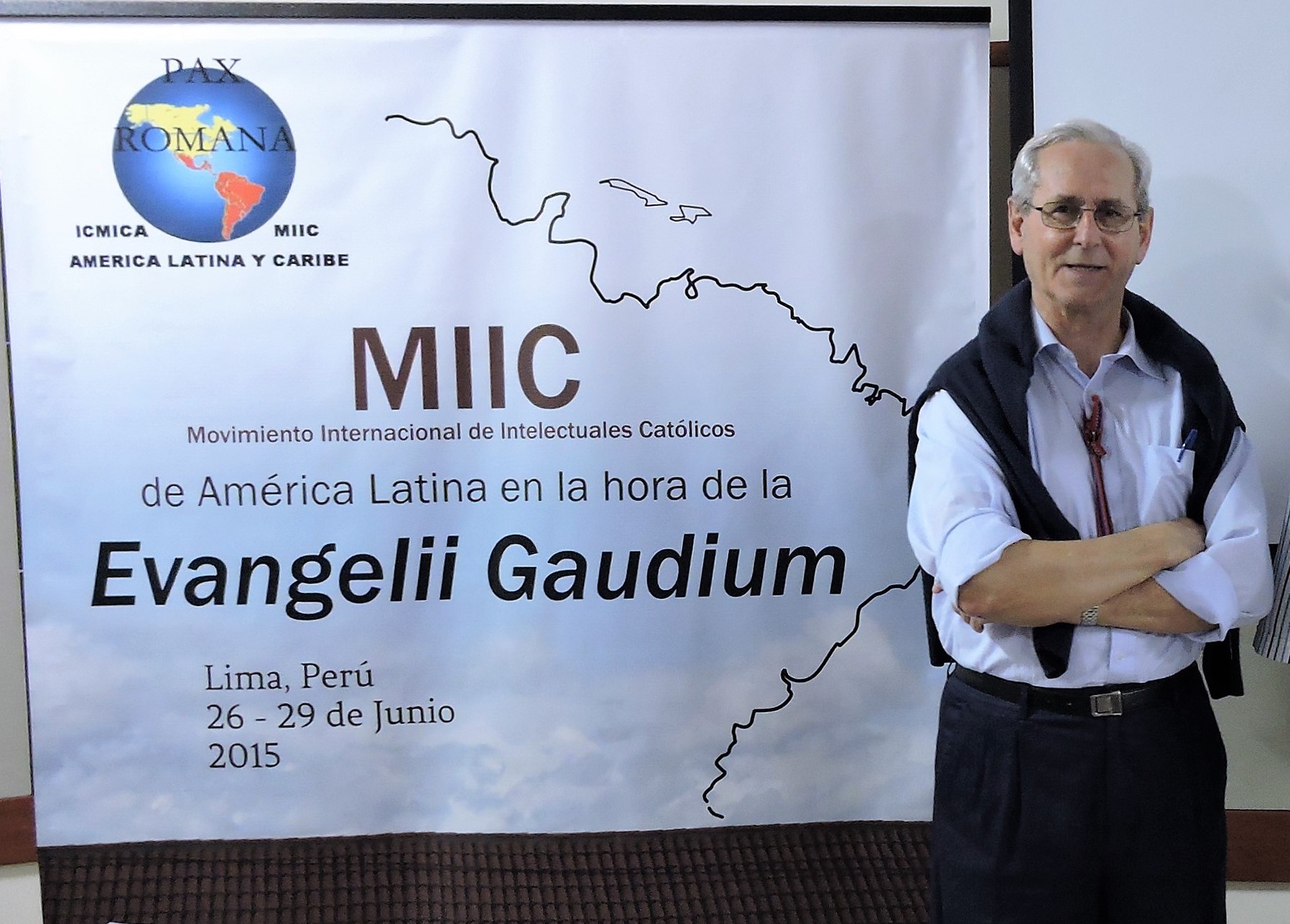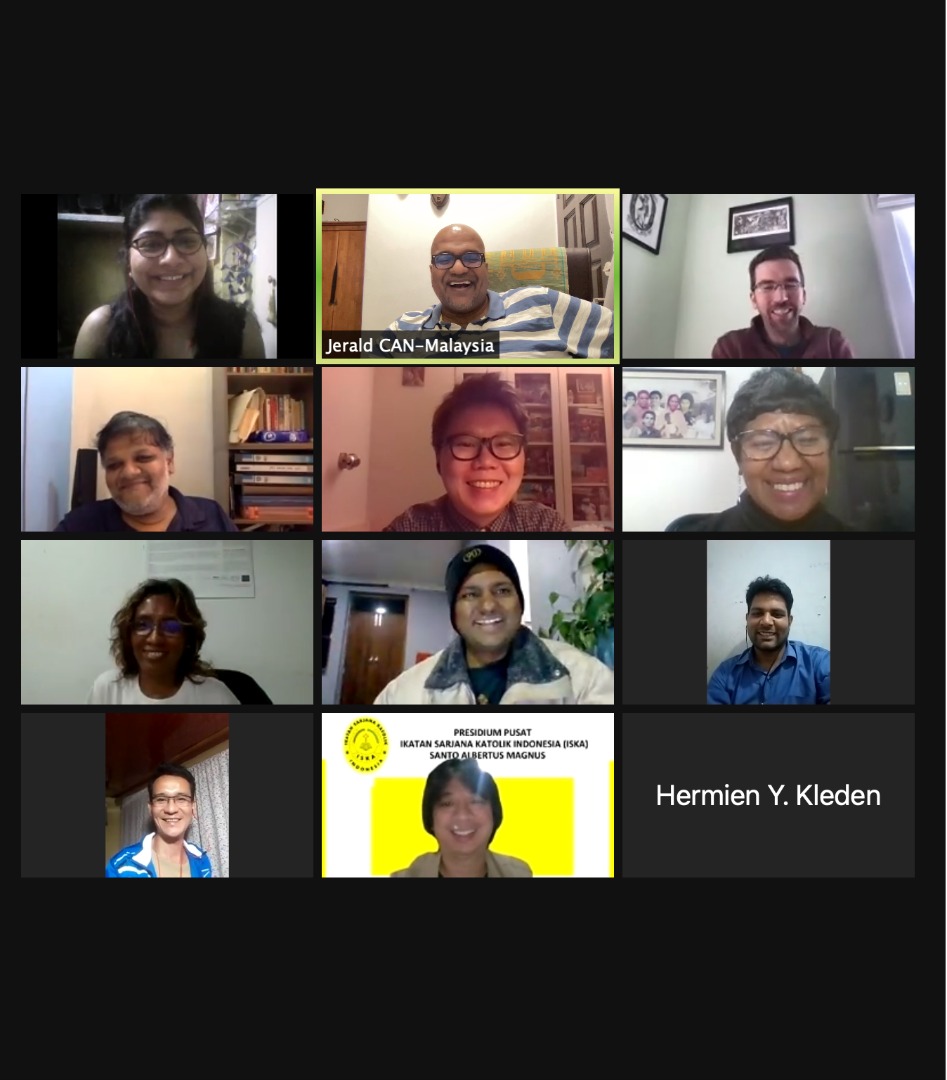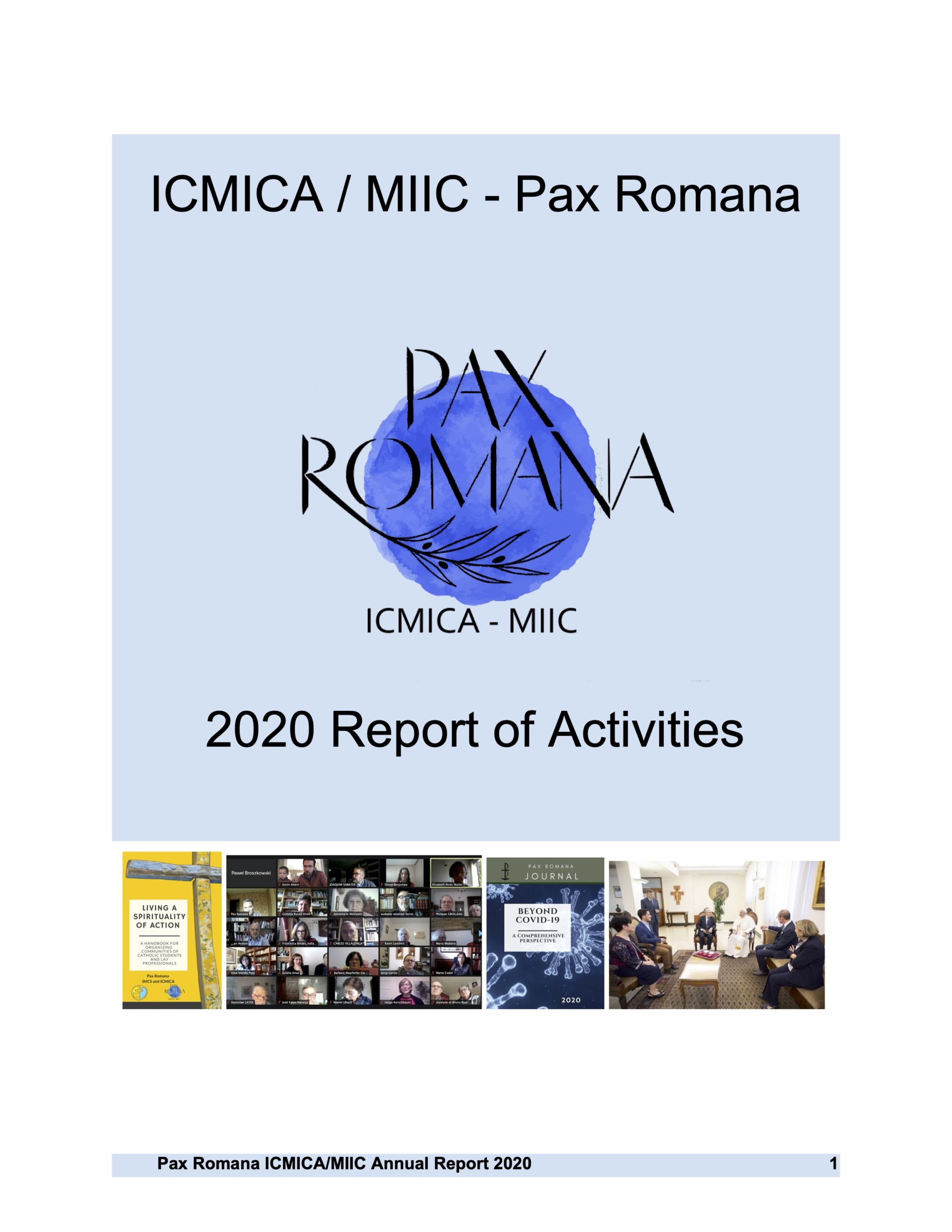Background
In the context of the Covid19 pandemic, Pax Romana (IMCS and ICMICA) has been looking for new ways to break the isolation with moments of prayer, reflection and liturgical celebration online. After a test on Palm Sunday, the celebration of Easter on 12 April was a first experience, with the participation of 88 people from more than fifty countries. Looking ahead to Pentecost, which our movements have long celebrated as Pax Romana Day, we propose to organize the « Worldwide Pentecost Celebration » (WPC).
Overview
For this WPC, we propose that the online participants’ meeting, the WPC includes three parts:
1 – before Pentecost: time for individual or team/movement preparation, based on the Gospel texts selected for the celebration, and few questions proposed.
2 – the online assembly held on the day of Pentecost,
3 – after: the diffusion of the event beyond the participants, through social media.
The meaning of the celebration
The Worldwide celebrations proposed by Pax Romana, are a community spiritual experience. They are not a Mass in reduction or a transitional measure while waiting for the return to normal life. Like the Mass, its purpose is to give life to a community that embodies the body of Christ on earth. Fr Sesboüé sj writes: “The ultimate aim of the Eucharist is not the change of bread and wine into the body and blood of Christ, but the access of the whole assembly to the body of Christ through the gift of the Spirit.
This celebration is also a way to express the spirituality of action that characterizes Pax Romana. The relationship with the real life, the place of Christ’s incarnation, is very important, both for understanding the situations and for action.
The “Worldwide” assemblies allow us to experience the great diversity of humanity. It is a symbol that helps to perceive God in his transcendence, the impossibility of pretending to understand him or to control him. However, the limits of this diversity must be recognized, as participants are generally highly educated and not all national cultures are represented.
The feast of Pentecost is particularly important. Historically, it is the feast of Pax Romana, but above all this worldwide celebration is in itself an experience of Pentecost. Indeed, we propose to live an encounter between people from different languages, who understand each other beyond this diversity, through their faith in the God of Jesus Christ.




Leave A Comment
You must be logged in to post a comment.